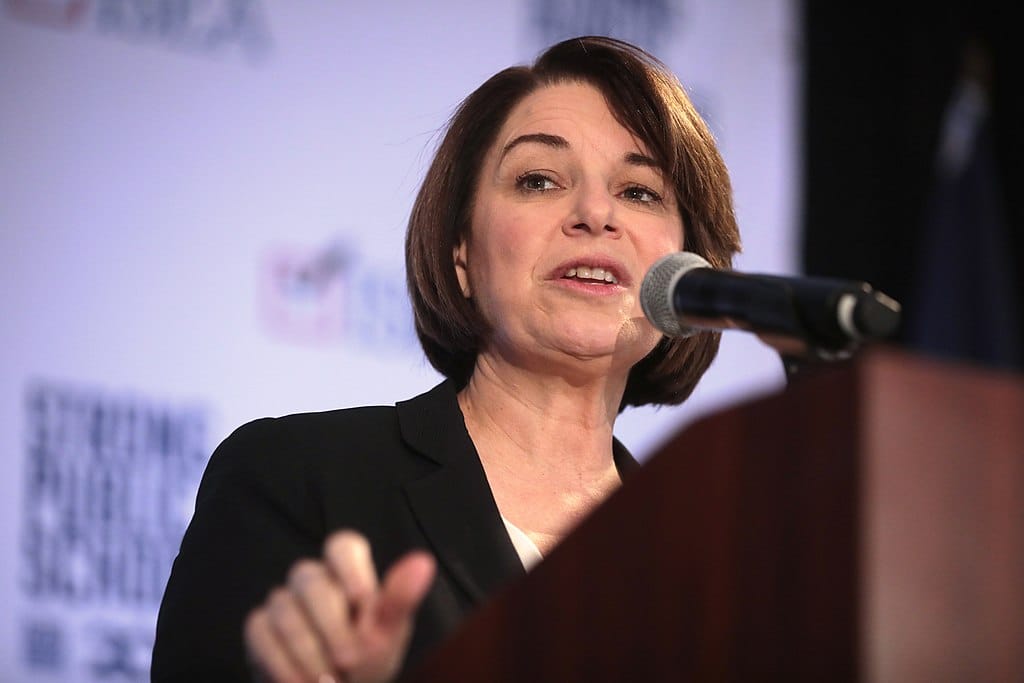Universal Service Fund Bill, Private-Public Era, USTelecom Expands Team, Giving Tuesday
A bill introduced this month requires the FCC to investigate the need to expand base of Universal Service Fund.
Benjamin Kahn

WASHINGTON, November 30, 2021 – Senator Amy Klobuchar, D-Minnesota, has introduced a bill this month to study whether the Universal Service Fund should broaden its contribution base to ensure the contribution requirement is imposed more equitably.
The “Reforming Broadband Connectivity Act of 2021” – co-introduced with Sens. John Thune, R-South Dakota, John Hickenlooper, D-Colorado, and Jerry Moran, R-Kansas – requires that the Federal Communications Commission conduct a study on assessing the need to expand the contribution base of the USF, a program that funds basic telecommunications services to rural, remote and low-income communities, and to submit a report to Congress on the results.
The legislation asks to “ensure that the contribution requirement” under the Communications Act of 1934 is “imposed fairly and equitably.”
The bill has been read twice and was referred to the Committee on Commerce, Science, and Transportation. If the bill is passed in the committee, it will move on to a vote in the Senate. Should it pass with no amendments, the bill will then move onto the House where it will be voted on again.
The bill was introduced to the Senate on Nov. 18, 2021, and as of Tuesday, no further action has been taken on the bill.
On Monday, 254 organizations representing a swath of public interest groups, anchor institutions and telecommunications companies signed a letter to Washington policymakers to sustain the program by broadening the USF’s contribution base – which relies on declining voice service revenues – to include broadband revenues.
New ‘era’ for broadband
In a Tuesday op-ed for the Benton Institute for Broadband and Society, Joanne Hovis, Ryland Sherman, and Marc Schulhof coined the past two years as “The Era of Broadband Public-Private Partnership,” following the “wave” of collaboration between public and private entities as Americans search more desperately than ever for means to bridge the digital divide.
The authors of the op-ed attributed the dawn of this era to four primary components: an influx of capital, a desire to invest in broadband infrastructure at the state and federal level, a sense of urgency to invest in broadband, a newfound willingness to operate with different types of internet service providers.
Though all these conditions existed prior to the pandemic, the authors argue that the pandemic was largely responsible for driving much of the urgency and demonstrated “to American policymakers the absolute need for plentiful connectivity and the crises faced by those who don’t have it — and simultaneously demonstrated to private investors the economic potential of best-in-class, future-proof broadband.”
In the view of the authors, public-private efforts represent win-win situations, whereby consumers are able to finally get the broadband coverage they need, and private entities are able to receive a greater return on their investment that may not otherwise be possible in certain regions and communities.
“The potential for public-private collaboration changes that binary and attracts private investment to areas where return is low or nonexistent but can be improved through collaboration with the local community,” the op-ed states. “And the potential for collaboration unlocks local public investment in already-served communities where policymakers want better broadband but prefer to do so in partnership with the private sector.”
The authors also recently published a new report covering these trends.
US Telecom expands their government affairs team
The Broadband Association announced the promotion of Hawley Stanton to senior director of Government Affairs. Additionally, Diana Eisner was made vice president of Policy and Advocacy, and Nicole Henry was made senior director of Government Affairs.
“I am thrilled to welcome new team members Diana Eisner and Nicole Henry and to announce a well-deserved promotion for Hawley Stanton. They are talented, experienced and ready to help advance our shared broadband priorities in 2022 and beyond,” said USTelecom President and CEO Jonathan Spalter.
Giving Tuesday appeals
Organizations from across the telecom industry have rolled out their Giving Tuesday appeals, asking from members of their communities to donate what they can in the wake of the Thanksgiving holiday.
The trend started back in 2012 as a way for communities to show their appreciation, thanks, and charity on the Tuesday following Thanksgiving. In 2020 alone, nearly $2.5 billion was given to various institutions in the U.S.
Though telecom advocacy only makes up a percentage of that total, groups have pointed out how important their work is as the Covid-19 pandemic continues into its third year.









Member discussion